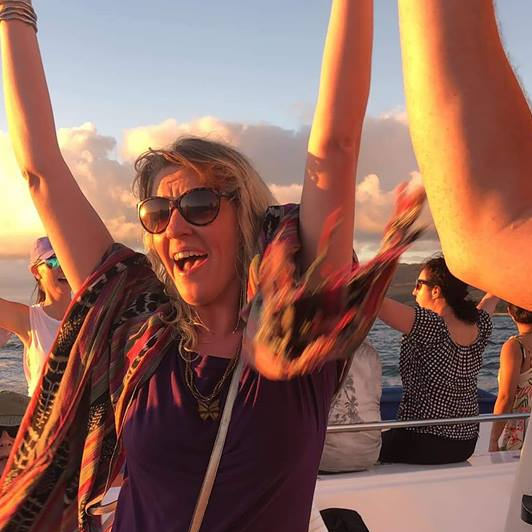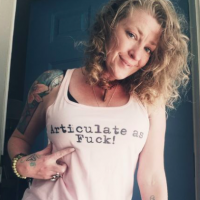For the last couple of months—who am I kidding, my whole life, really—I have been on a journey.
At the center of that journey is me: my desire to know myself, give love, engage in mutuality with others, and cultivate the space I need to grow into who I really am, while uncovering my gifts and offering them to the world.
A big part of navigating all of that has been learning how to extract toxic patterns from my life and set healthy boundaries with myself and others. Notice I say extract patterns, not people.
People are inherently pure. People are inherently love. People are doing the best they can and trying to choose the experiences that they, themselves, need to grow.
People are not inherently toxic, but sometimes the energy and choices they are aligning themselves with can be. Though they might not see it that way, and who am I, really, to make that call? I do not know what experiences or substances they may need to dance with for their own soul growth. All I can say, without recrimination, is that the choices, substances, and energies that some are entangled with feel toxic to me.
And that is where the bottom line lies, for me.
I cannot in good conscience and accountability to myself entangle with those energies. I will not foster connections based on misogynistic dynamics or distorted by substance abuse or bullying. Love the person yes, indubitably, and realize people must embody the choices they make. As people with free will, we all choose to bring certain behaviors through our bodies and into our realities. To deny the effect that our decisions have on others is shortsighted at best, and can be selfish, abusive, or even dangerous at times.
The point of relational boundaries is simply this: creating a distinction within the experiences of wholeness. There may be one energy, a unified field of consciousness, but it is manifesting through a billion and one flavors. Baskin Robbins ain’t got nothing on consciousness!
Consciousness—whether we’re acting in a conscious or unconscious way—is full of variety, choice, and possibility, none necessarily better than another, just different.
Individuation is key on our journey into being a fully realized, loving, powerful, capable expression of that consciousness, and that means judicious use of our capacity and right to say both yes and no—to patterns, activities, substances, behaviors, and sometimes the people who are choosing to embody them.
Health, at all levels, is a direct by-product of individuation. We are not extensions of anyone or anything. We are whole individuals, and a profound part of our experiences here in this world is our right to choose what and who that journey needs to include. Sometimes that means we limit our time with certain people; sometimes that means we walk completely away.
This does not mean that we cut off love from ourselves or from another—it means that we choose to let that love move in a way that is healthy for us and allows us to honor ourselves.
A relational boundary is looking at what patterns I want to host in my body, my life, and my reality. A healthy relational boundary is me taking accountability for how I feel, allowing others to have their experiences—no matter how unappealing or even awful those might appear to me, no matter how badly I may want to reach across time and space and choke or embrace them. I go back and forth on that one; I’m still human. Boundaries are not stagnant lines drawn in the sand; they are living breathing energetic agreements that truly allow individuation, communication, and compassion to flourish.
Real compassion is me being responsible for my own feelings and experiences, and ultimately my own happiness. I cannot be held responsible for anyone else’s feelings or experiences. I can take responsibility for how my behaviors affect another and I can choose how to respond to another’s behavior toward me, but I cannot protect. I cannot save. All I can do is love. And for that love to be authentic, it has to begin with me. I must honor love in the way that I need to feel full, whole, and happy within myself and my agreements.
Choosing congruent agreements is a powerful expression of choice, and I will continue to feel my way into how that manifests, moment to moment and day to day. They cannot become stagnant or static. Agreements need to shift and grow with us, and must be constantly negotiated and modified. Continued communication, as a living function of agreements, allows us to heal, change, and grow—both together and separately. This will mean navigating joy, as well as discomfort.
Discomfort is a part of living a dynamic life, of being human. Living a life of happiness means that no matter what happens—comfortable or uncomfortable—I attend to myself and my needs with care and grace. As I do so, I become the best version of myself and my joy expands, as does my capacity to give and show up for myself and others.
I know when I say no to certain dynamics or leave a situation or relationship, it is with mutual respect for all involved and with the intention to grow in authenticity and dignity. I know when I say yes to something, it is with wholehearted enthusiasm.
It is only with dynamic, healthy boundaries that happiness can truly take route and flourish—and our life can become a living expression of compassion.
~












Read 21 comments and reply